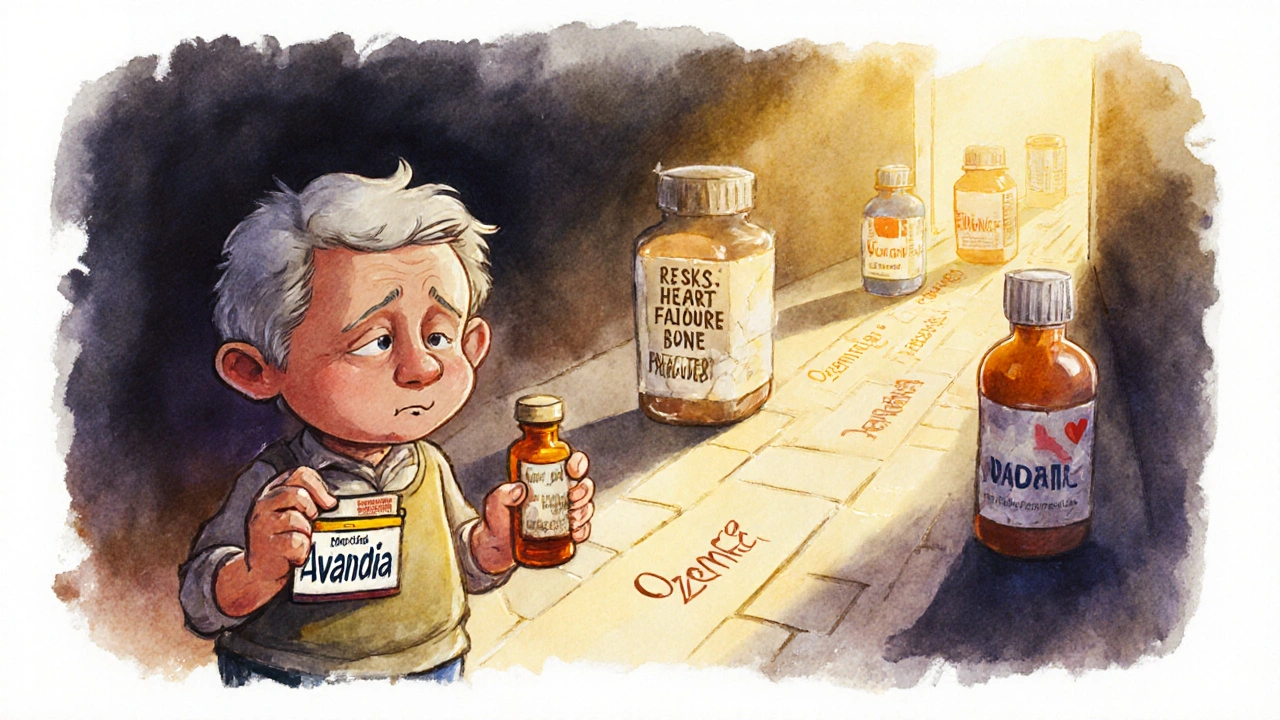Avandia: What It Is, How It Works, and Alternatives You Should Know
When you hear Avandia, a brand name for the diabetes drug rosiglitazone, used to improve how the body responds to insulin. Also known as rosiglitazone, it was once a go-to for people with type 2 diabetes who needed better blood sugar control without insulin injections. Avandia works by making your body’s cells more sensitive to insulin—so your muscles and fat tissues can pull glucose out of your blood more efficiently. That means less sugar floating around, which lowers your HbA1c and reduces long-term damage from high blood sugar.
But Avandia isn’t what it used to be. Around 2007, studies linked it to a higher risk of heart attacks, especially in people who already had heart disease. The FDA slapped on a black box warning, and many doctors stopped prescribing it. Today, it’s rarely the first choice. Instead, metformin, SGLT2 inhibitors like Jardiance, or GLP-1 agonists like Ozempic are preferred because they work just as well—or better—and come with fewer heart risks. Even so, Avandia still shows up in some older treatment plans, especially when other meds haven’t worked or when cost is a factor.
What you need to know is this: Avandia doesn’t cure diabetes. It doesn’t make your pancreas produce more insulin. It just helps your body use what it already has. That’s why it’s often paired with other drugs like metformin or sulfonylureas. But if you’re on Avandia now, watch for swelling in your legs or ankles, sudden weight gain, or shortness of breath—those could be signs of heart failure, a known side effect. And if you’ve got a history of heart problems, talk to your doctor about switching. There are safer, more modern options that do the same job without the risk.
Looking at the posts here, you’ll see a pattern: people are comparing drugs, not just names. They want to know what works, what doesn’t, and what’s safer. You’ll find deep dives into metformin combos, alternatives like Diamox and Daliresp, and even how genetics affect how meds work for you. Avandia might be fading from the spotlight, but the questions around it—how to manage diabetes safely, what to switch to, and why some meds get pulled—are still very real. This collection gives you the facts, not the fluff, so you can make smarter choices with your doctor.
Avandia (Rosiglitazone) vs Alternatives: What You Need to Know in 2025
- Keith Ashcroft
- |
- |
- 12
Avandia (rosiglitazone) is rarely used today due to serious heart and bone risks. Discover safer, more effective alternatives like metformin, SGLT2 inhibitors, and GLP-1 agonists for type 2 diabetes management in 2025.
View more
